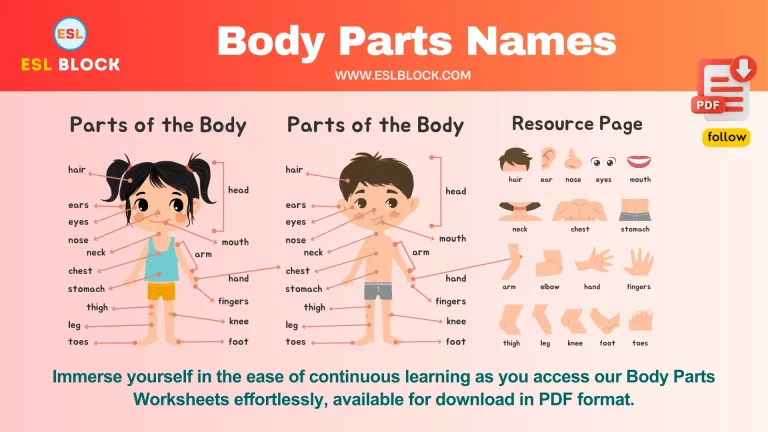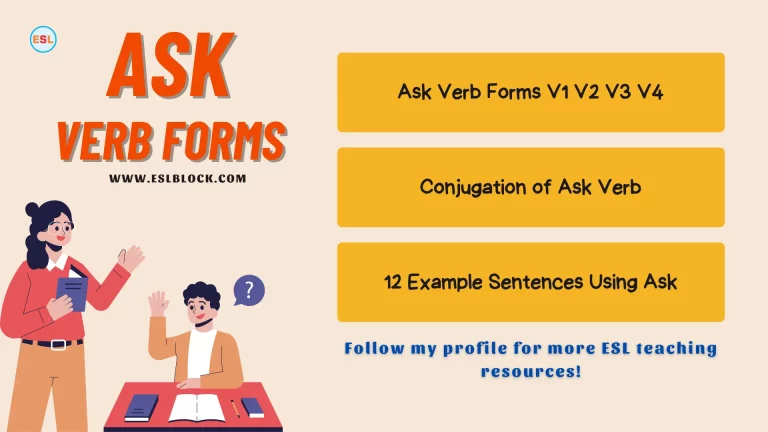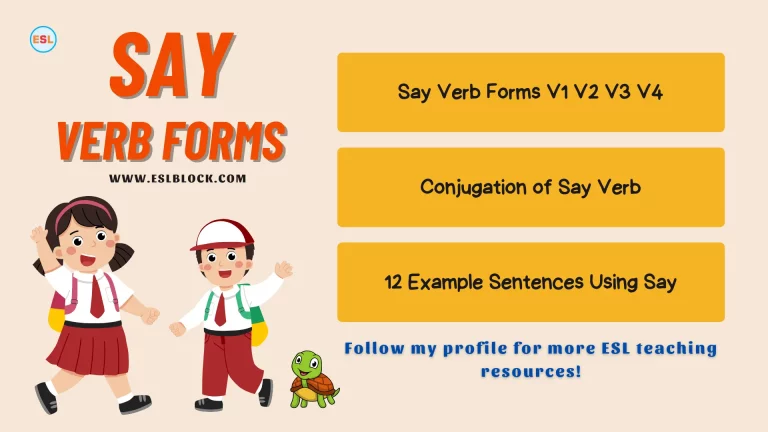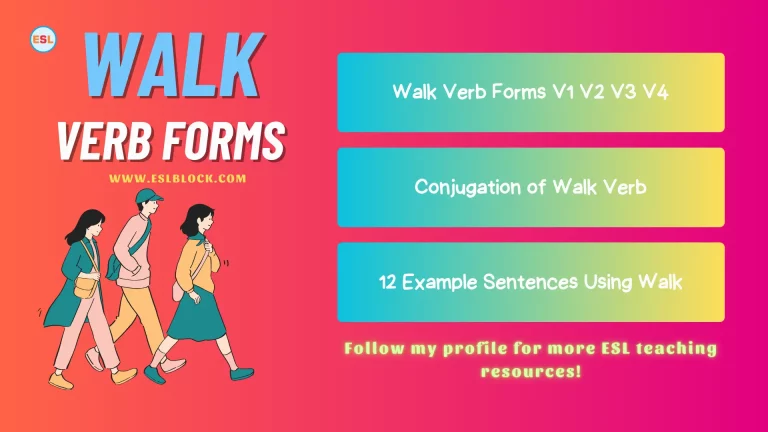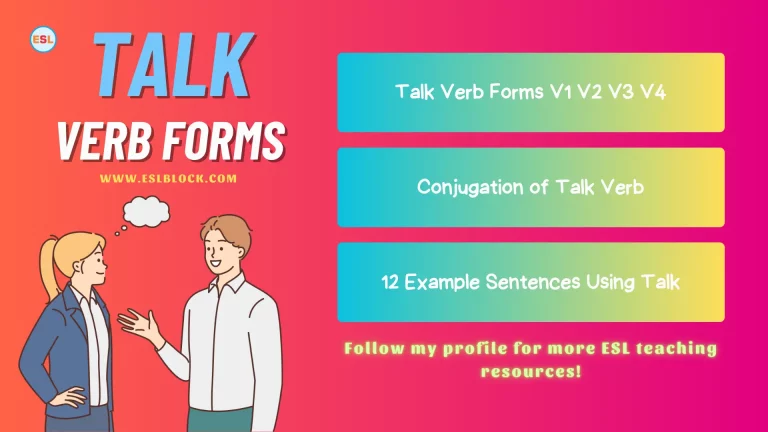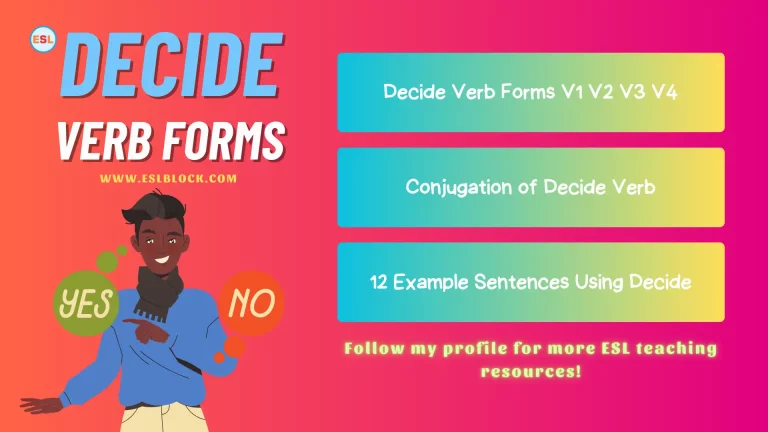Types of Pronouns with Example Sentences
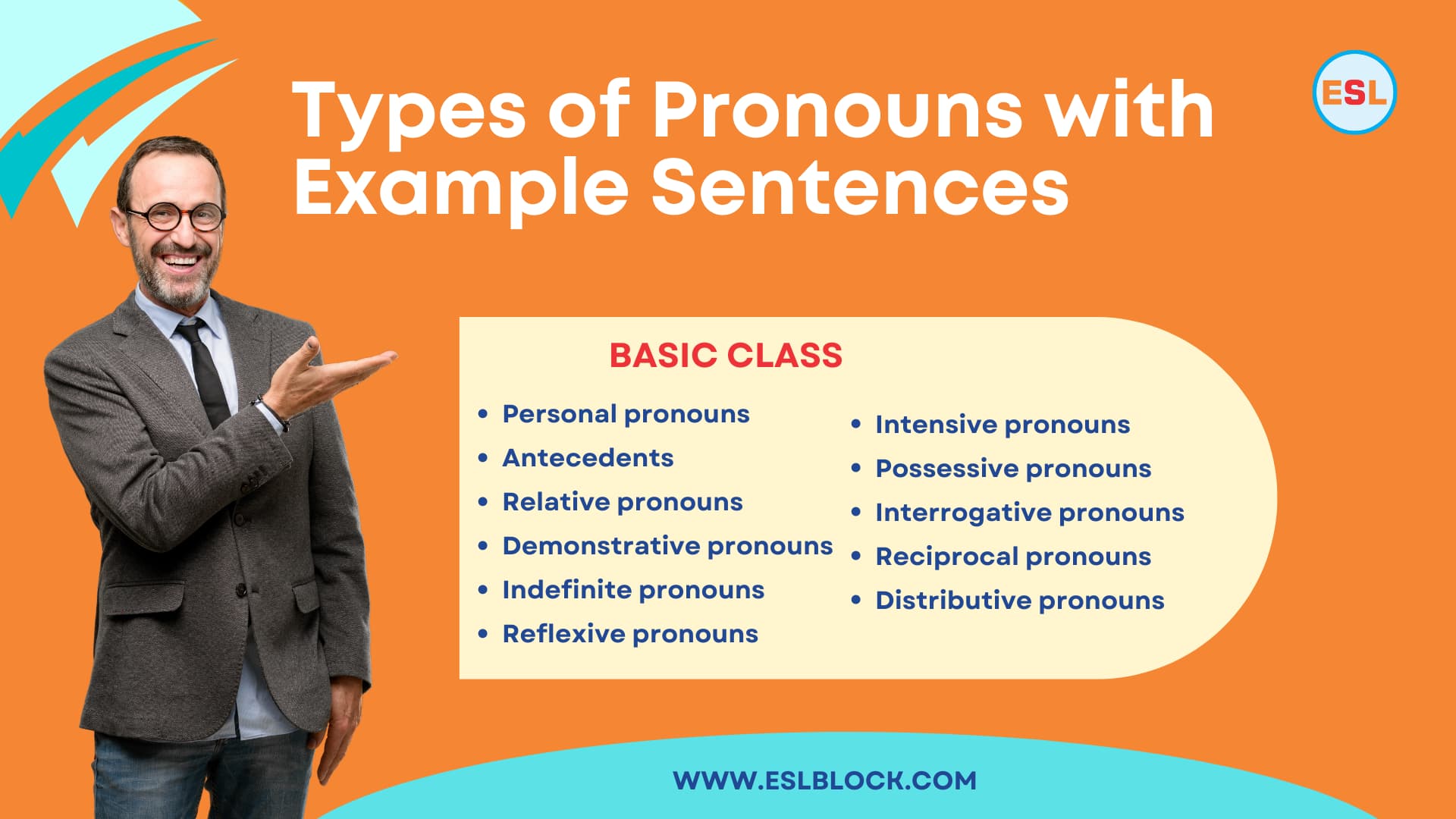
Pronouns are a significant part of a sentence, like a verb. It plays an essential role in a sentence. You use a pronoun in almost every sentence; therefore, using pronouns correctly in your sentences is vital.
In this article, I am going to explain What are the Types of Pronouns with Example Sentences? A pronoun is one of the nine parts of speech. The other eight are verbs, adjectives, articles, interjections, conjunctions, prepositions, nouns, and adverbs. Pronouns are short words that are used to replace a noun or a noun phrase. You may perform a pronouns quiz for more understanding.
Also read: What is a Pronoun in English Grammar?
Types of Pronouns
We will learn the 11 types of pronoun words you can use to replace the duplicative noun words in this blog.
- Personal pronouns
- Antecedents
- Relative pronouns
- Demonstrative pronouns
- Indefinite pronouns
- Reflexive pronouns
- Intensive pronouns
- Possessive pronouns
- Interrogative pronouns
- Reciprocal pronouns
- Distributive pronouns
1. Personal Pronouns
These types of pronouns are used to represent specific people or things. Examples of personal pronouns include I, We, You, she, he, it, they, him, me, her, us, and them. These are all the words used in first-person, second-person, and third-person.
Personal pronoun Example sentences:
- She plays baseball at our university.
- He is working with a Dell company.
- We are completing our assignment.
- We have to be thankful for the food.
- She left her meeting file at the office.
- Many cookies are there in her pocket.
- Her mother is not a tennis player.
- They don’t have a child at this time.
- They have done it successfully.
- You are ready to join us.
- He is weak in chemistry.
- They cooked noodles for kids yesterday.
- I love to play with my new friends.
- He went to the office without having breakfast.
- Does she go to the gym for a workout daily or not?
- Pets like to enjoy themselves with her so much.
- It is not your fault.
- Don’t you understand my words?
- We bathe daily, even in the winters.
- She is going to England for higher studies.
- She has hazel eyes.
- We are coming to our office.
- He is my best friend.
- I am afraid of swimming.
- You are a melodious singer.
- They went to the hospital.
2. Antecedent
Did you recall that for a person to be able to communicate with a pronoun, you must introduce the noun before you can use it? This noun is called an antecedent.
Antecedent pronoun Example sentences:
- Anyone who has completed their exam may leave.
- Everybody on the team did their best.
- Neither ate his lunch.
- His family tests her patience, but he loves them.
- Her mother said she was almost finished with the assignment.
3. Relative Pronouns
Relative pronouns direct to nouns mentioned previously and help you show a relationship. Relative pronouns include these words: that, what, who, whom, which, whichever, when, whatever.
Relative pronoun Example sentences:
- The lady who called yesterday wants to buy the shoes.
- Now they were driving by the village that Sophia had explained.
- She is a sound artist whose work I like.
- All the pets that got adopted today will be loved.
- My shoes, which are nearly five years old, still look well.
- The cyclist who won the race trained intensely.
- The dresses that I bought yesterday are already stained.
- The five-team leaders, whoever the panel selects, will be at tomorrow’s meeting.
- Where did you buy the skirt that you wore last week?
- The report, when it was finally returned, was torn.
- The lunch which we enjoyed was delicious.
- This is the matter that we were talking about.
- He met the girl to whom he wrote a letter last weak.
- I have a best friend whose cat is hazardous.
- Grandma belongs to the time when radio shows were popular.
- I have never met a friend whose nature is terrible.
- I am sure about the person who ate the pasta.
- Mrs. William, who spoke on the stage, was lovely.
- These are the cookies that Isabella made.
- The boy, who wins the game, will be awarded the prize.
- I will give you first whichever box I will get.
- The purse that I bought was recently stolen.
- The person who taught me last night was my uncle.
- This is the park where we met.
- My aunt is an engineer whose sun has been brought first in class.
4. Demonstrative Pronouns
Demonstrative pronouns are used to refer to something mentioned explicitly within a sentence. The demonstrative pronouns include this, that, those, and these.
- These are the best countries.
- Isabella likes the yellow flowers, but she prefers those red ones.
- She would like that one.
- Those aren’t pears; they’re apples.
- This pie I’m eating is the best I’ve ever had!
- These girls in our row are quiet, but those girls in the front are loud.
- This song I’m listening to is one of my favorites.
- These wheelchairs over here will be donated to the hospital.
- Those books over there are the ones we’re reading.
- I want to make sure that the car back there isn’t following us.
- This is my father’s sweet home.
- That looks like a loin.
- These are lovely flowers but smell not good.
- Those are wild plants and very poisonous.
- This is my academy, where I come daily for the test.
- That is not football.
- These are my favorite cookies.
- Those are mine shoes.
5. Indefinite Pronouns
These pronouns do not refer to a particular person, place, or thing. Examples of Indefinite Pronouns include all, any, anything, everything, another, each, few, many, none, some, both, anybody, several, everybody, nobody, none, anyone, no one, everyone, etc.
- Nobody is going to Russia.
- There are several theives in my village.
- She likes both of these purses.
- Everyone is eating apples.
- Someone is driving a car.
- No one is sleeping in my bed.
- I gave everything to Sophia.
- He saw something in the old park.
- There is nothing to wear.
- I looked everywhere for my shoes.
- Isabella is looking for somewhere to live.
- There is nowhere as attractive as Paris.
- Amelia has three cats, so she’s not looking for another.
- Does anybody have a hint about where the cat went?
- Anyone can play hockey.
- Each brought a plated dish to make the meal complete at Thanksgiving dinner.
- Let’s try each one before choosing which to order.
- Either would be a good option.
- Everyone is dancing in the bar.
- Everyone understands it is rude to stare.
- Charlotte lost everything when her house burned down.
- Little is known about the masked bank thief.
- I heard the news, but no one had told me much.
- Neither will admit that they robbed the bank.
- Nobody saw the cat slip out the back window.
- Nothing matters more than getting an A+ on this exam.
- Somebody emailed me with a query about the festival.
- Just ask someone to pick up disposable plates for the party.
- Something doesn’t feel right about this condition.
6. Reflexive Pronouns
Reflexive pronouns will end in -self or -selves, used for another pronoun. Reflexive pronouns include Herself, Himself, itself, Myself, Oneself, Ourselves, Themselves, Yourself, and Yourselves.
Reflexive pronoun Example sentences
- You should take care of yourselves.
- She goes to university herself.
- Sophia can do it by herself.
- You could ride by yourself.
- Isabella tried it herself.
- Elijah hurt himself.
- I was in a rush, so I cleaned the car myself.
- They’re going to have to drive themselves to university today.
- She wanted to impress him, so he baked a cake herself.
- That car is in a class all by itself.
- Mia does chores herself because she doesn’t trust others to do them right.
- It would help if you didn’t believe in me; I consider myself.
- He cuts himself badly in depression.
- We have moved ourselves from that apartment.
- When I feel depressed, I better discuss it with myself.
- They can do this all by themselves.
- Today night, I will cook everything by myself.
- You have to face this situation yourselves.
- Emma was blaming herself for that failure.
- She loves to dance herself alone in her room.
- They come forward by themselves and support socially.
- Oliver himself helped many people in this flood.
- I want to pull this useless truck myself.
- He is late for the university, so he makes breakfast himself.
- She watched herself in the place of that actress in the show.
- Olivia swims herself on the beach.
7. Intensive Pronouns
The intensive pronoun directs to a second noun or pronoun in the same sentence to highlight its meaning.
Intensive pronoun Example sentences
- I told you I could do it myself.
- They asked themselves, is this job really worth saving?
- The dog caught the toy itself.
- Ava cooks lunch herself.
- I eat my cookies myself.
- I myself don’t ignore you.
- He himself built that plaza.
- Emma approved the purchase herself.
- The protest was so crazy that she herself stood up before the crowd to take a stand.
- You yourselves need to clean up this room!
- They bought themselves a luxury car.
- We built a park shed by ourselves.
- Lucas made himself a sandwich.
- I’m a little nervous about walking by myself after sickness.
- Amelia sewed her dress herself.
- The speaker himself couldn’t have stated it better.
- I myself decorated the classroom.
- We ourselves drove to the hospital.
8. Possessive Pronouns
Possessive pronouns indicate ownership of the object. Possessive pronouns include her, his, its, my, our, their, and your.
Possessive pronoun Example sentences
- I crashed my car into a strong wall.
- Your street is always decorated.
- Do you see that girl over there? Her height is very high.
- Is that your car? No, ours is the one inside the garage.
- These pens are mine, not yours.
- This is my sister‘s skirt. It’s her.
- The dog was hers.
- Sophia and Oliver are friends of mine.
- This classroom is ours.
- This is my book.
- She has many candies in her pocket.
9. Interrogative Pronouns
Interrogative pronouns are used in questions. Interrogative pronouns include these words: Who, Which, Where, How, What, and Whose.
Interrogative pronoun Example sentences
- Who wants a book of horror stories?
- What is your name?
- Which place do you want to visit?
- Whose pen is this?
- How many bananas do you have?
- Which way is the park?
- Is that where the birds flies?
- When will you visit your town?
- Where do you play?
- Why haven’t you started exploring?
- What kind of song do you want to dance to?
- Which bike would make you healthier?
- Which do you like, white or red?
- Who finished your meal today?
- Whom did you call to the home yesterday?
- Whose is this big red notebook?
10. Reciprocal pronouns
The reciprocal pronoun is used to demonstrate the same action or emotion that is reciprocated. There are only two reciprocal pronouns; each other and one another.
Reciprocal pronoun Example sentences
- They are not comfortable with each other.
- The two friends care about one another.
- Charlotte and James, the two top salespeople in our company, are competing with each other for the Salesperson of the Year title.
- Amelia and Benjamin love each other.
- Charlotte and Amelia hate each other.
- The five prisoners were all blaming one another.
- Both players played hard against each other.
- We handed each other gifts.
- Why don’t you accept each other?
- They can’t visit each other.
- The gangsters were fighting one another.
11. Distributive Pronouns
Distributive pronouns describe people, animals, or objects as individuals in larger groups. Distributive pronouns include these words: Any, Each, Either, Neither, and None.
Distributive pronoun Example sentences
- Each of the students has participated in the school games.
- I may buy either of these two cars.
- Neither of them runs slow.
- Each one of you will be awarded a gift.
- Everyone must finish breakfast.
- All of my brothers entered the costume contest, and none won.
- Chicken and pizza are available for lunch. Neither is appealing to me.
- Each of the blog posts is informative.
- Neither of the children can stand still for five minutes.
- Each of the boys can participate in the dance competition.
- Either of you is not perfect for this assignment.
- Neither of the books is helpful.
- Any of them can attend the conference.
- None of the council members agreed to improve the building maintenance.
- Neither of them helped him to dance in a reality show.
- Every one of you is shining, according to the principal.
- Each one of you will be allowed to attend the class.
- Neither of the newspapers is in German.
- Each of the students draws a picture.
- Each of the actors participated in the drama act.
- I may buy either of these two doors.
- Neither of us plays excellently.
- Each one of you will be awarded a bravery award.
- Everyone must finish dinner.
- None of our brothers went to the wedding party.
Rules for Using Pronouns Exercise
These exercises will help you understand the rules for using pronouns. To complete each sentence, choose the best answer.
- ________ The monster’s got him!
- We killed ________.
- ________ are a boss.
- ________ play pole vaulet.
- I’ve lost ________ book.
- ________ are smart girls.
- Benjamin sold ________ car.
- Where are ________ shoes?
- The fighters killed ________.
- I learned German by ________.
- ________ knows where he is.
- Would you like ________ to eat?
- ________ else suggested going out.
- ________ is interesting in the movie.
- ________ was ready for the concert.
- She can get a driving license if ________ is 18.
- ________ are the most intelligent kids here.
- Would you like ________ to play with?
- ________ is the best volleyball player on the team.
- Was there ________ they knew at the university?
- The day ________ the concert takes place is Sunday.
- ________ of us could not watch the movie.
- ________ of those models is at the top.
- ________ of the two men is a good engineer.
- She has ________ of the qualities required to be a good technician.
- ________ lady can wear a skirt.
- ________ of you has obtained the prize.
- ________ favor you can select.
- ________ of the answers is accurate.
- ________ of you has to come to the right place.
- ________ of you is accountable for yourself.
- You can sit on ________ side of her.
- ________ of you is picked for the final.
- ________ of us got a prize.
- The teacher gave us a book ________.
- ________ of the subjects is interesting to me.
- ________ of you is not my relative.
- ________ you or he can obey me.
- I want to spend ________ holiday differently.
- He enjoyed ________ moment he passed with us.
- ________ of you is healthy and fit.
- ________ of you can meet the Principal regarding this problem.
- ________ of us has no issue with going on the tour.
- They have ________ been invited to the farewell party.
- ________ of you is brave.
- ________ of us almost thinks in the same way.
- ________ of them explained the topic very politely.
- I have distributed the children three apples ________.
- ________ of you has taken a different position according to the assignment.
- ________ team may win the competition.
Answer Key:
- We killed him.
- You are a boss.
- I play pole vaulet.
- I’ve lost my book.
- You are smart girls.
- Benjamin sold his car.
- Where are our shoes?
- The fighters killed him.
- I learned German by myself.
- Someone knows where he is.
- Would you like something to eat?
- Nobody else suggested going out.
- Nothing is interesting in the movie.
- Everything was ready for the concert.
- She can get a driving license if she is 18.
- They are the most intelligent kids here.
- Would you like something to play with?
- She is the best volleyball player on the team.
- Was there anyone they knew at the university?
- The day when the concert takes place is Sunday.
- Each of us could not watch the movie.
- Either of those models is at the top.
- Neither of the two men is a good engineer.
- She has none of the qualities required to be a good technician.
- Any lady can wear a skirt.
- Everyone should be aware of safety rules.
- Each of you has obtained the prize.
- Either favor you can select.
- Neither of the answers is accurate.
- Each of you has to come to the right place.
- Each of you is accountable for yourself.
- You can sit on either side of her.
- Neither of you is picked for the final.
- Everyone of us got a prize.
- The teacher gave us a book each.
- Neither of the subjects is interesting to me.
- Either of you is not my relative.
- Either you or he can obey me.
- I want to spend each holiday differently.
- He enjoyed each moment he passed with us.
- Everyone of you is healthy and fit.
- Any of you can meet the Principal regarding this problem.
- Each of us has no issue with going on the tour.
- They have each been invited to the farewell party.
- Each of you is brave.
- Each of us almost thinks in the same way.
- Neither of them explained the topic very politely.
- I have distributed the children three apples each.
- Neither of you has taken a different position according to the assignment.
- Either team may win the competition.
Types of Pronouns InfoGraphics
Here are some printable infographics about Types of Pronouns with Example Sentences. Printable infographics are a fantastic way to share a significant amount of details in a short time in a stunning way. The Types of Pronouns with examples of infographics can help teachers and students to share their thoughts easily.
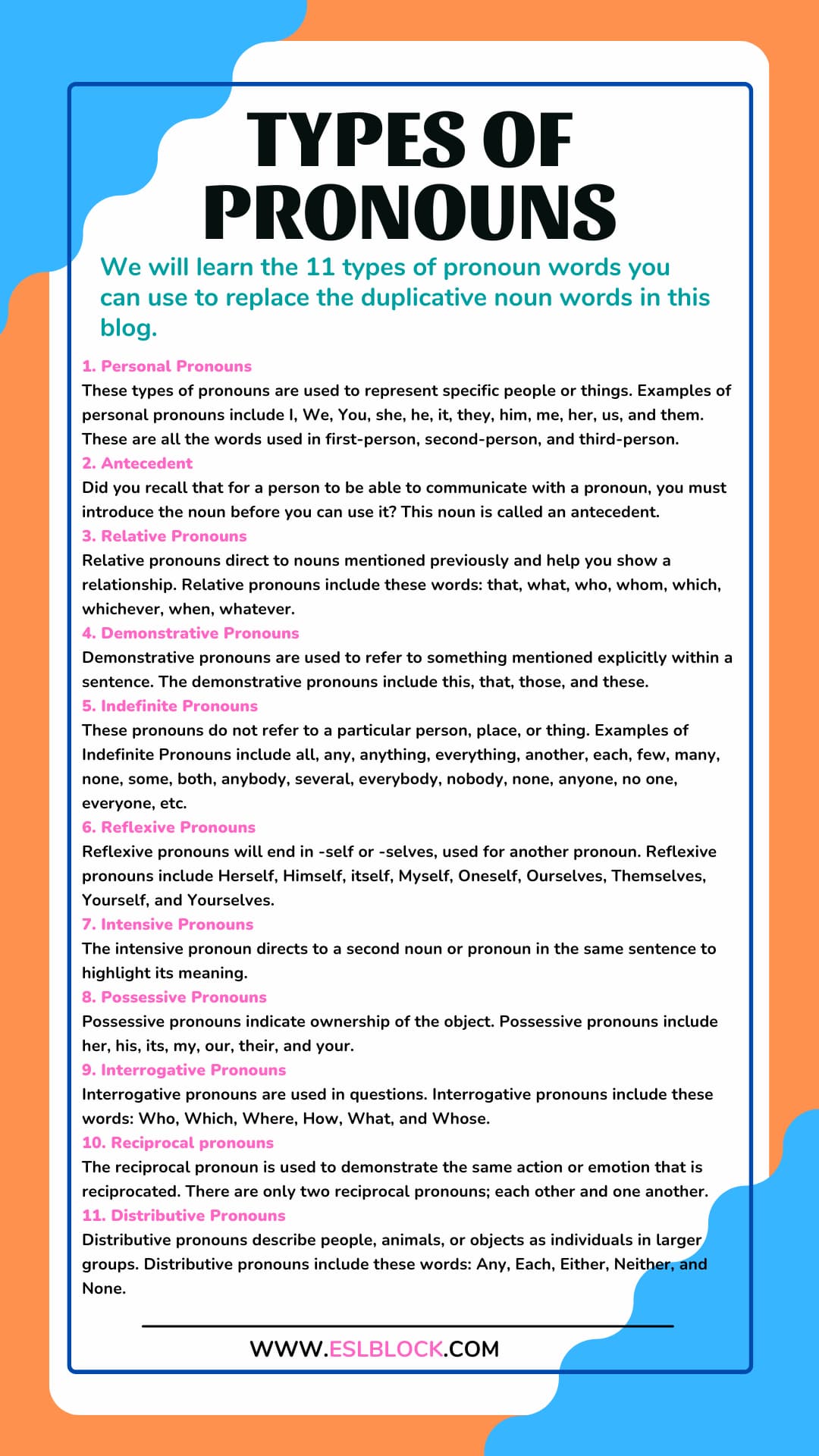
My Considerations
With this set of Types of Pronouns with Example Sentences, you will quickly determine whether you are making the most effective use of the Types of Pronouns and how they could be used to enhance English writing skills.
Since the types of pronouns are the main part of English Grammar, the importance of developing English learning skills cannot be undervalued without Types of Pronouns with examples.
You can read the above sample sentences about Types of Pronouns with Example Sentences to improve your understanding of English grammar.
Encourage your children to learn these basic but common types of pronouns with example sentences, by following the simple example sentences given above. Then, save this list of types of pronouns, handy for your kids in the future.
If you enjoyed a printable infographic about Types of Pronouns with Example Sentences, I’d be very thankful if you’d help it spread by emailing it to your friends or sharing it on Pinterest, Reddit, Twitter, Instagram, or Facebook. Thank you!
Also read: Adjectives That Start With Y
Recap of what we just learned
- Types of Pronouns with Example Sentences
- Types of Pronouns
- Personal pronouns
- Antecedents
- Relative pronouns
- Demonstrative pronouns
- Indefinite pronouns
- Reflexive pronouns
- Intensive pronouns
- Possessive pronouns
- Interrogative pronouns
- Reciprocal pronouns
- Distributive pronouns
- Types of Pronouns Exercise
- Answer for Types of Pronouns Exercise
- Types of Pronouns InfoGraphics
- Types of Pronouns Quiz
With ESLBLOCK, you will not face problems studying new ideas. If you are in doubt, about the qualities of blog posts about Types of Pronouns, reach us through our blog’s comment section. Keep checking back! We’ll attempt to give you feedback as early as possible. Thank you!
Also read: Adjectives That Start With Z
Rules for Using Pronouns Quiz
[qsm quiz=18]
Related Topics
Explore the full list of Adjectives to Describe a Person from A to Z!
- A Adjectives to Describe a Person
- B Adjectives to Describe a Person
- C Adjectives to Describe a Person
- D Adjectives to Describe a Person
- E Adjectives to Describe a Person
- F Adjectives to Describe a Person
- G Adjectives to Describe a Person
- H Adjectives to Describe a Person
- I Adjectives to Describe a Person
- J Adjectives to Describe a Person
- K Adjectives to Describe a Person
- L Adjectives to Describe a Person
- M Adjectives to Describe a Person
- N Adjectives to Describe a Person
- O Adjectives to Describe a Person
- P Adjectives to Describe a Person
- Q Adjectives to Describe a Person
- R Adjectives to Describe a Person
- S Adjectives to Describe a Person
- T Adjectives to Describe a Person
- U Adjectives to Describe a Person
- V Adjectives to Describe a Person
- W Adjectives to Describe a Person
- X Adjectives to Describe a Person
- Y Adjectives to Describe a Person
- Z Adjectives to Describe a Person

